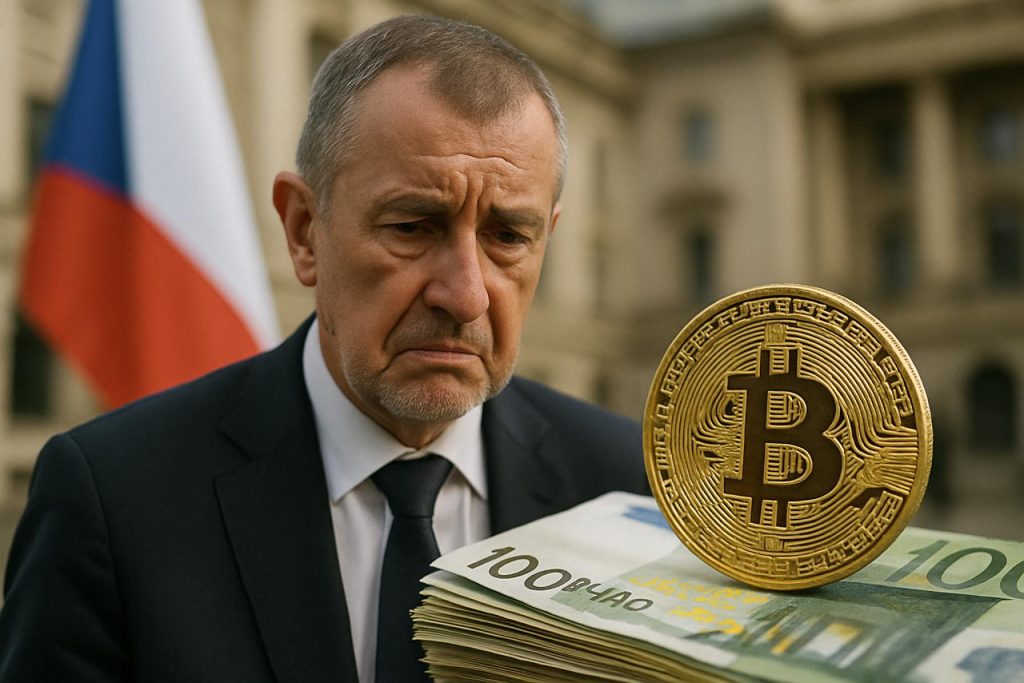
Czech Politics in Chaos: Massive Bitcoin Scandal Sparks Minister’s Resignation and Government Crisis
€40 million in bitcoin from a convicted criminal triggers minister’s resignation, a no-confidence vote, and fears of global cybercrime in Czechia.
- €40 million bitcoin donation under intense scrutiny
- Justice Minister resigns as scandal explodes
- National Security Council and intelligence services investigating
- Potential government no-confidence vote looms
The Czech Republic is in the grip of an unprecedented political crisis as a staggering €40 million bitcoin windfall, linked to a notorious convicted trafficker, threatens to topple the government and send shockwaves through Europe.
Justice Minister Pavel Blažek was forced to resign following revelations that his ministry accepted a massive crypto donation linked to Tomáš Jiřikovský—a man convicted of drug trafficking, arms dealings, and embezzlement. The origins of this bitcoin fortune remain murky, but its arrival has launched a political firestorm that now engulfs Prime Minister Petr Fiala’s administration.
Across Czechia, concern mounts as the integrity of top institutions and the nation’s global reputation are thrust into question. President Petr Pavel warned lawmakers that the scandal risks eroding public trust in the courts and could damage Czech credibility abroad.
Meanwhile, opposition leader Andrej Babiš and his ANO party have seized the moment, demanding a parliamentary no-confidence vote and accusing the government of criminal negligence. He has gone as far as to call for the ban of Fiala’s ODS party.
For many, the scandal foreshadows a new era of cybercrime and institutional vulnerability, a risk echoed by Fiala in his urgent announcement: the National Security Council, along with intelligence agencies, has been mobilized to track the origins and intent behind the crypto windfall.
A nation once praised for stability is now in the global spotlight—caught between cyber threats, political gamesmanship, and the shadowy world of digital currencies.
Reuters | BBC | Cointelegraph
What Actually Happened?
The alarm was sounded when it was revealed that Justice Minister Pavel Blažek’s office received a €40 million bitcoin donation, allegedly routed from Tomáš Jiřikovský, a criminal with convictions for drugs and weapons offenses.
While the legal status of the bitcoin’s origins has not been officially proven, intelligence teams are already combing transaction records and wallet histories, stirring concerns about large-scale money laundering and the Czech state being used as an unwilling conduit for international crime.
How Could This Impact the Country?
Not only is the Czech government now fighting for survival, but its trustworthiness in handling cyber threats is under major scrutiny. The fallout is likely to impact investor confidence, international cooperation, and upcoming elections.
President Pavel cautions that such scandals can undermine citizens’ faith in fairness and the rule of law, while experts warn that the situation spotlights gaping holes in Europe’s anti-money laundering defenses.
Why Are Crypto Crimes Rising in 2025?
Global watchdogs at the Europol and UNODC warn that as cryptocurrency use grows, criminals increasingly use digital currencies for money laundering, bribery, and funding illicit activities. Decentralized funds, insufficient oversight, and slow regulation let criminals exploit technological gaps, turning even government agencies into potential targets.
How Can the Czech Republic Bounce Back?
– Conduct a full, transparent investigation into the bitcoin’s origins
– Strengthen anti-money laundering laws regulating crypto
– Increase collaboration with global cybercrime authorities
– Rebuild public trust with clear, consistent communication
– Encourage international review of overlooked regulatory loopholes
What Does This Mean for Europe?
The Czech scandal is a wake-up call for all democratic nations: digital currencies can empower progress, but also expose governments to unprecedented threats. With more regulation on the horizon and political careers hanging in the balance, the next moves made in Prague could shape the European crypto landscape for years.
Stay informed as this story unfolds and demand transparency from your leaders. Here’s your quick response checklist:
- Follow updates on national security council proceedings
- Watch for results from intelligence service investigations
- Review new anti-crypto crime policies from Czech authorities
- Support calls for greater transparency in government dealings
Don’t miss a beat—bookmark this story and stay ahead of the biggest political and crypto developments of 2025!



